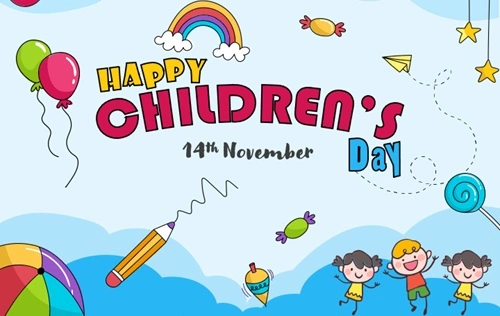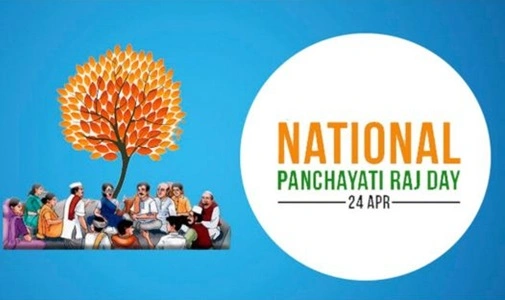Children are the future of a nation, and their well-being, education, and happiness are crucial for a country’s progress. Recognizing the importance of nurturing and celebrating childhood, Children’s Day is celebrated across India on November 14th every year. This special day is dedicated to honoring children, promoting their rights, and fostering their development. It also marks the birth anniversary of Pandit Jawaharlal Nehru, India’s first Prime Minister, who was famously fond of children and believed in the power of education to shape young minds.
In this article, we will explore the history, significance, and celebrations of Children’s Day in India, as well as the lessons it imparts for building a better future.
History of Children’s Day in India

Children’s Day in India is celebrated on November 14th, coinciding with the birth anniversary of Pandit Jawaharlal Nehru, who was born in 1889. Fondly called “Chacha Nehru” by children, he was a firm believer in the importance of children’s education and their role in nation-building.
Before 1964, Children’s Day in India was observed on November 20th, aligning with Universal Children’s Day, as declared by the United Nations. However, after Pandit Nehru’s death in 1964, his birthday was designated as Children’s Day to honor his contributions to children’s welfare and education.
Nehru believed that children are like buds in a garden, and it is the responsibility of society to nurture them into responsible citizens. His efforts to improve education and create opportunities for children remain foundational to India’s progress.
Why Is Children’s Day Important?
Children’s Day is not just about fun and celebration; it also serves as a reminder of the responsibilities we have as a society toward the younger generation. It highlights the importance of:
1. Education for All
Nehru’s vision emphasized that every child, irrespective of their background, should have access to quality education. Children’s Day reinforces the idea that education is a fundamental right.
2. Children’s Rights and Welfare
The day draws attention to issues like child labor, abuse, and inequality, emphasizing the need for policies and actions to ensure children’s safety, health, and happiness.
3. The Role of Children in Nation-Building
Children are the torchbearers of the future, and investing in their well-being today ensures a stronger, brighter tomorrow for the nation.
4. Raising Awareness About Challenges
Many children in India still face challenges like poverty, malnutrition, and lack of access to education. Children’s Day serves as an opportunity to advocate for their rights and address these issues.
How Is Children’s Day Celebrated in India?
Children’s Day is celebrated with great enthusiasm and joy across schools, colleges, and communities in India. Here’s how this special day is observed:
1. School Activities
Schools play a central role in celebrating Children’s Day. Teachers and staff organize a variety of activities to entertain and inspire students, such as:
- Cultural programs: Skits, dance performances, and music events are organized to add fun and excitement.
- Games and sports: Schools arrange games, races, and competitions to encourage teamwork and sportsmanship.
- Essay and art competitions: Students participate in essay writing, poetry recitation, and drawing contests on themes like childhood, dreams, or Pandit Nehru’s life.
2. Role Reversal Activities
On Children’s Day, many schools adopt a role-reversal approach, where teachers perform entertaining skits, songs, and dances to amuse the children. This gesture symbolizes the importance of making children feel valued and loved.
3. Distributing Gifts and Sweets
Children receive sweets, chocolates, and small gifts from teachers, parents, and community leaders. These tokens of love symbolize the joy and innocence of childhood.
4. Awareness Campaigns
Non-governmental organizations (NGOs) and community groups conduct campaigns and programs to highlight issues affecting children, such as child labor, education disparity, and malnutrition.
5. Special Media Programs
Television channels and online platforms broadcast children-centric programs, cartoons, and movies on this day to entertain and engage the younger audience.
6. Visits to Orphanages and Shelters
Many schools and communities organize visits to orphanages, shelters, and underprivileged areas to share the joy of Children’s Day with those who are less fortunate.
Pandit Jawaharlal Nehru’s Contributions to Children and Education
Pandit Nehru’s legacy as a leader who championed the cause of children and education is deeply ingrained in Indian history. Some of his key contributions include:
1. Establishment of Educational Institutions
Nehru envisioned India as a modern, scientific nation and laid the foundation for several premier institutions, such as:
- Indian Institutes of Technology (IITs)
- Indian Institutes of Management (IIMs)
- All India Institute of Medical Sciences (AIIMS)
2. Universal Primary Education
Nehru strongly advocated for free and compulsory education for all children. His vision eventually led to the inclusion of Article 45 in the Constitution, emphasizing the need for universal education.
3. Promotion of Science and Technology
Nehru believed that scientific education was essential for India’s growth. He encouraged young minds to explore science and innovation.
4. Focus on Holistic Development
Nehru emphasized that education should not just focus on academics but also on developing creativity, imagination, and moral values in children.
Challenges Faced by Children in India Today
Despite the celebrations and progress, millions of children in India continue to face challenges that hinder their growth and development. Children’s Day also serves as a call to action to address these issues:
1. Child Labor
Many children are forced into labor due to poverty, depriving them of their right to education and childhood.
2. Education Inequality
Access to quality education remains a challenge, especially in rural areas and for economically disadvantaged communities.
3. Malnutrition
A significant number of children in India suffer from malnutrition, affecting their physical and mental growth.
4. Child Abuse and Exploitation
Cases of child abuse, trafficking, and exploitation are still prevalent and need urgent attention.
5. Digital Divide
With the increasing reliance on online education, many children from underprivileged backgrounds are unable to access digital learning tools.
The Way Forward: Building a Better Future for Children
To truly honor the spirit of Children’s Day, it is essential to take concrete steps to address these challenges and create a nurturing environment for children.
1. Strengthening Education Policies
Programs like the Right to Education Act must be implemented effectively to ensure that every child has access to free and quality education.
2. Eradicating Child Labor
Stronger laws and community involvement are needed to eliminate child labor and provide vocational training for children in need.
3. Promoting Health and Nutrition
Initiatives like the Mid-Day Meal Scheme should be expanded to ensure that no child goes hungry.
4. Encouraging Digital Inclusion
Providing affordable internet access and digital devices can bridge the gap in education for underprivileged children.
5. Fostering Creativity and Innovation
Schools and parents should encourage children to explore their interests and talents, be it in art, sports, science, or technology.
Conclusion
Children’s Day in India is more than just a celebration of childhood; it is a reminder of the collective responsibility we share to nurture, protect, and empower the younger generation. As we honor Pandit Jawaharlal Nehru’s vision, let us pledge to create a society where every child has the opportunity to dream, learn, and grow.
By investing in education, addressing inequalities, and promoting a safe and healthy environment, we can ensure that the children of today become the leaders, innovators, and changemakers of tomorrow. After all, as Chacha Nehru once said, “The children of today will make the India of tomorrow. The way we bring them up will determine the future of the country.”
Happy Children’s Day!

